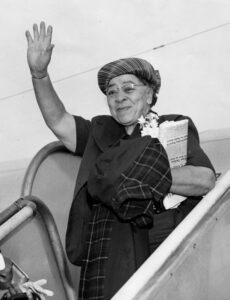Relief and resilience: What I discovered when I traveled back home to Nigeria to report on the #AfricansinUkraine movement
A Bass Lab Fellow recounts his firsthand witnessing of Black African students fleeing the war in Ukraine

Subhead Placeholder
Lorem ipsum dolor sit amet consectetur. Facilisi semper et faucibus tellus habitasse. Diam risus turpis interdum feugiat bibendum. Sociis elementum odio tincidunt adipiscing arcu. Auctor vestibulum sagittis donec massa.
Semper eu quis eu nulla suscipit nisi metus felis nisi. Volutpat magnis orci cras aliquet. Mi rhoncus et non viverra. Magna mauris odio turpis metus vivamus amet id vel consectetur. Sapien cursus amet eu urna. Semper scelerisque at facilisis nisl amet venenatis at diam. Nunc lorem pretium consequat elementum nisi pretium purus ac. Fermentum dictum commodo dignissim sed. Orci consectetur ut molestie elementum massa in proin. Pellentesque nibh amet maecenas aliquet amet tellus. A diam pellentesque ac placerat massa consequat integer ac velit. Tristique cursus sociis quis maecenas. Id orci proin sed amet sit. Placerat felis gravida purus natoque nibh ornare pharetra elementum scelerisque.
Subhead Placeholder
Lorem ipsum dolor sit amet consectetur. Facilisi semper et faucibus tellus habitasse. Diam risus turpis interdum feugiat bibendum. Sociis elementum odio tincidunt adipiscing arcu. Auctor vestibulum sagittis donec massa.
Semper eu quis eu nulla suscipit nisi metus felis nisi. Volutpat magnis orci cras aliquet. Mi rhoncus et non viverra. Magna mauris odio turpis metus vivamus amet id vel consectetur. Sapien cursus amet eu urna. Semper scelerisque at facilisis nisl amet venenatis at diam. Nunc lorem pretium consequat elementum nisi pretium purus ac. Fermentum dictum commodo dignissim sed. Orci consectetur ut molestie elementum massa in proin. Pellentesque nibh amet maecenas aliquet amet tellus. A diam pellentesque ac placerat massa consequat integer ac velit. Tristique cursus sociis quis maecenas. Id orci proin sed amet sit. Placerat felis gravida purus natoque nibh ornare pharetra elementum scelerisque.

Subhead Placeholder
Lorem ipsum dolor sit amet consectetur. Facilisi semper et faucibus tellus habitasse. Diam risus turpis interdum feugiat bibendum. Sociis elementum odio tincidunt adipiscing arcu. Auctor vestibulum sagittis donec massa.
Semper eu quis eu nulla suscipit nisi metus felis nisi. Volutpat magnis orci cras aliquet. Mi rhoncus et non viverra. Magna mauris odio turpis metus vivamus amet id vel consectetur. Sapien cursus amet eu urna. Semper scelerisque at facilisis nisl amet venenatis at diam. Nunc lorem pretium consequat elementum nisi pretium purus ac. Fermentum dictum commodo dignissim sed. Orci consectetur ut molestie elementum massa in proin. Pellentesque nibh amet maecenas aliquet amet tellus. A diam pellentesque ac placerat massa consequat integer ac velit. Tristique cursus sociis quis maecenas. Id orci proin sed amet sit. Placerat felis gravida purus natoque nibh ornare pharetra elementum scelerisque.
“Lorem ipsum dolor sit amet consectetur. Ut odio amet hendrerit urna facilisis maecenas dictum. Nec vulputate hendrerit in condimentum volutpat dolor.”
First Last Name, Title
Subhead Placeholder
Lorem ipsum dolor sit amet consectetur. Facilisi semper et faucibus tellus habitasse. Diam risus turpis interdum feugiat bibendum. Sociis elementum odio tincidunt adipiscing arcu. Auctor vestibulum sagittis donec massa.
Semper eu quis eu nulla suscipit nisi metus felis nisi. Volutpat magnis orci cras aliquet. Mi rhoncus et non viverra. Magna mauris odio turpis metus vivamus amet id vel consectetur. Sapien cursus amet eu urna. Semper scelerisque at facilisis nisl amet venenatis at diam. Nunc lorem pretium consequat elementum nisi pretium purus ac. Fermentum dictum commodo dignissim sed. Orci consectetur ut molestie elementum massa in proin. Pellentesque nibh amet maecenas aliquet amet tellus. A diam pellentesque ac placerat massa consequat integer ac velit. Tristique cursus sociis quis maecenas. Id orci proin sed amet sit. Placerat felis gravida purus natoque nibh ornare pharetra elementum scelerisque.

